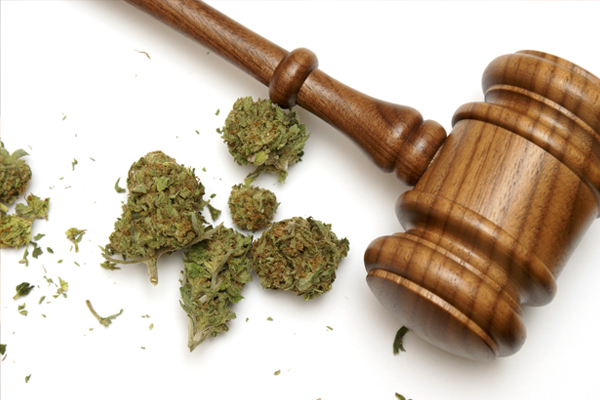Marijuana laws have altered to the point where several drug offenses no longer possess the strong charges they once used to. This means that rather than being dealt with a possible jail term when caught with small amounts of marijuana, the penalties for a person charged with possession typically consist of a small fine. It also entails that a charge of possession in a decriminalization state will generally not lead to an arrest or any of the other punishments and procedures applicable to people charged with a criminal offense.
It must be explained that when it comes to marijuana laws, decriminalization is not the exact same as legalization. To decriminalize something means that a state repealed or amended its laws to make certain acts criminal, but no longer subject to prosecution. In the marijuana context, this means people caught with small quantities of marijuana for personal use won’t be prosecuted and won’t subsequently receive a criminal record or a jail sentence. In many states, possession of small amounts of marijuana is treated like a minor traffic violation. States that have decriminalized marijuana include Alaska, California, New York, Minnesota, North Carolina, Oregon, and much of the Northeast.
The repercussion of eliminating jail as a sentencing option for cannabis possession has primarily been a positive one. Despite fears that drug use would increase because of decriminalization, there is little evidence to show that this occurred in any of the states that have decriminalized small quantities of marijuana. Reductions in the costs of enforcement and courts have implied that these funds can be invested somewhere else.
Marijuana Laws: What to Do If Busted Before Marijuana Decriminalization
Prior to the reform, people were arrested, convicted, and sentenced to jail (often for long periods of time) for simple possession. Marijuana laws have substantially changed, in some cases enabling adults to possess a small amount of marijuana, those already sentenced are still in prison serving sentences to this very day.
If you are one of those ill-fated individuals or know somebody who was found guilty before marijuana possession became decriminalized, or even legal, you are perhaps thinking if there is any legal recourse that could really help.
Marijuana Laws: Ex Post Facto Laws Are Prohibited
Under Article I, Section 9 of the U.S. Constitution’s, ex post facto laws are forbidden.
An ex post facto law is “a law that retroactively alters a defendant’s right, especially by criminalization and imposing punishment for an act that was not criminal or punishable at the time it was committed, but increasing the severity of a crime … by increasing the punishment for a crime … or by taking away from the protections afforded the defendant.”
In other words, laws can not be applied retroactively to convict you of a crime that wasn’t a crime when you committed it.
Marijuana Laws: Retroactive Amelioration Relief
A new law decriminalizing a crime can not be utilized to lower or end a conviction that happened prior to the new law’s passage, unless the law has a retroactive amelioration clause.
Take for example Proposition 36, in which California amended the three strikes law to impose a life sentence only when a third felony conviction is serious or violent. Before the amendment, many were sentenced to life in prison for nonviolent crimes, like shoplifting. The change wouldn’t lessen their sentence, Proposition 36 also warranted courts to re-sentence offenders presently serving life sentences for non-violent third strike convictions, allowing for retroactive ameliorative relief.
Though post-conviction relief varies from state-to-state in the U.S., amelioration usually needs to be clearly specified by lawmakers for it to take effect. In a political system immobilized by the need of candidates to seem hard on crime, this rarely happens.
Marijuana Laws: Applying for a Pardon
A pardon is one type of clemency– a privilege that is bestowed to certain suspects or convicts that either lessens or removes their criminal liability. Clemency is typically issued by the head executive of a jurisdiction (e.g., mayor, governor, or president), and a pardon, which oftentimes forgives all criminal liability for a person’s wrongdoing, is considered the highest form of clemency.

